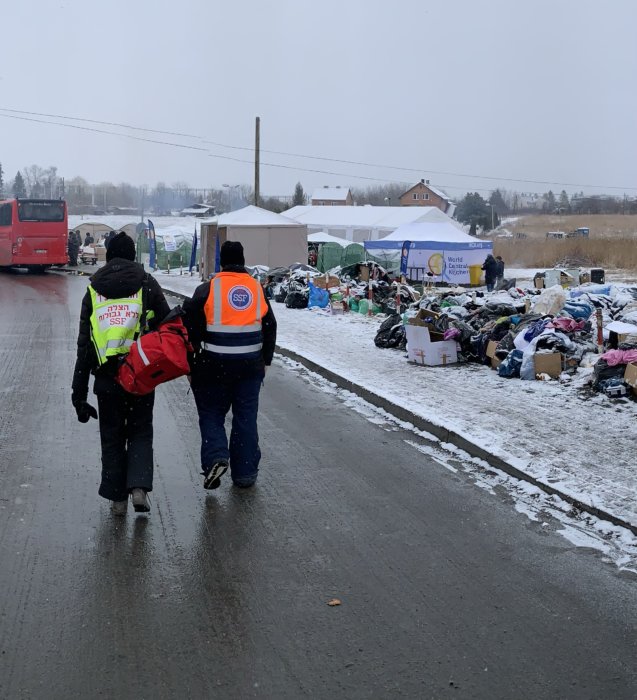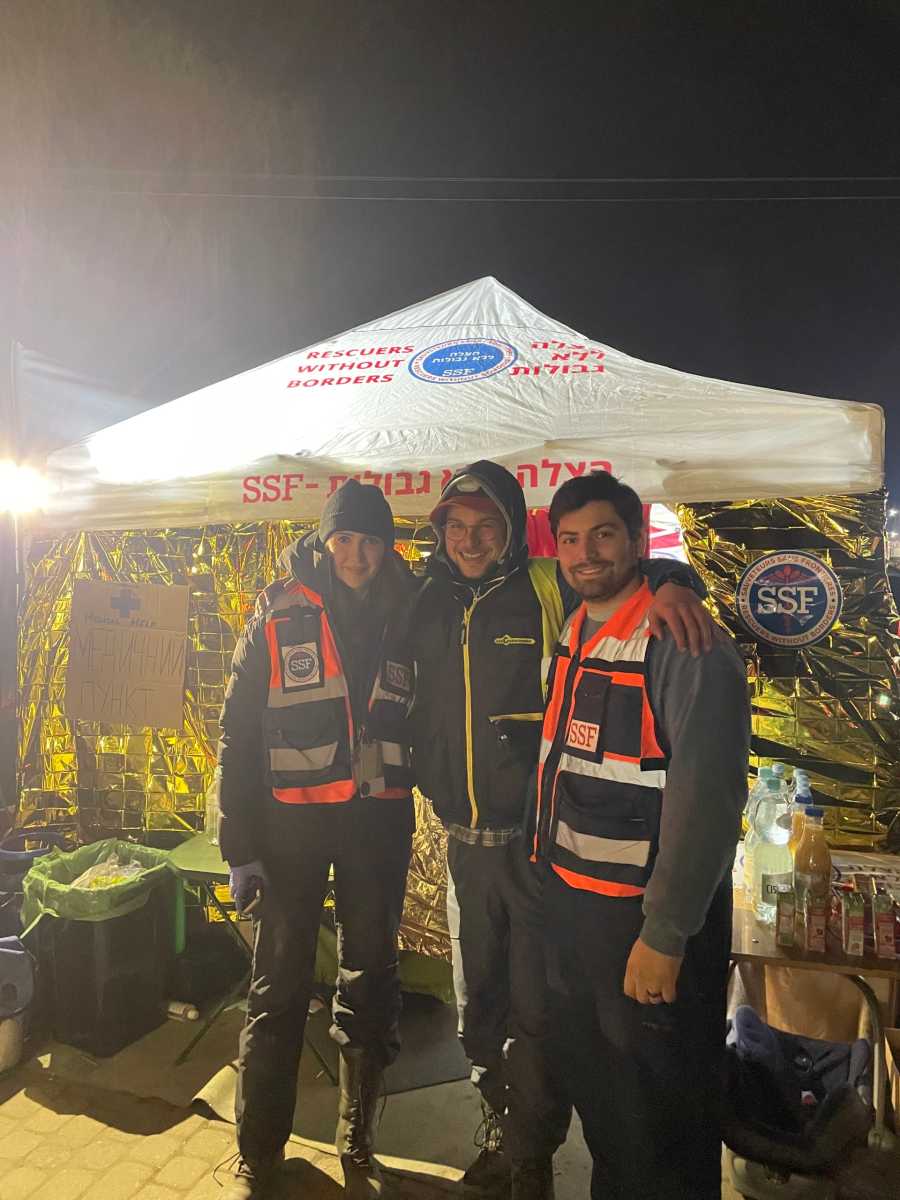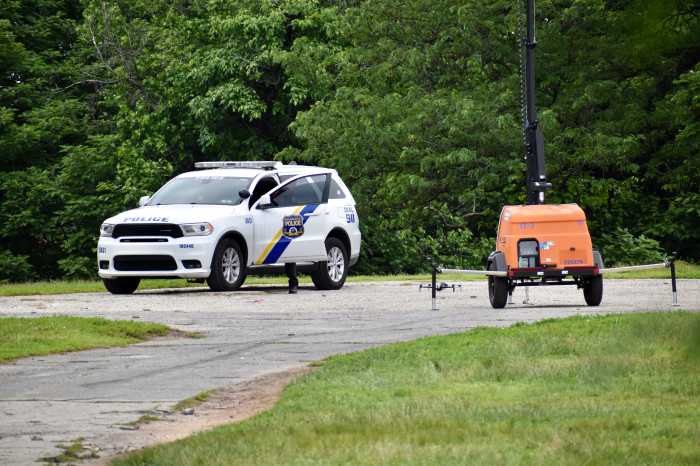Dr. Laura Bukavina didn’t book a return flight to Philadelphia.
She flew to Eastern Europe on Feb. 26 — about 48 hours after Russia’s invasion of Ukraine began — to assist those at the Polish border attempting to flee the violence.
Ukrainians, mostly women and children, have stood in line at border crossings for up to several days, Bukavina said, developing dehydration, hypothermia, upper respiratory infections, fevers, foot sores, broken bones and other ailments.
“I think what people don’t realize is that this happened very suddenly for many, many people,” said Bukavina, a 37-year-old urologic oncology fellow at Fox Chase Cancer Center in Northeast Philadelphia.
“The people that are crossing the border are walking a lot of times, and they come in with a small grocery-sized bag of goods, essentially,” she added, speaking on a video call from Warsaw, Poland. “That’s their whole life with them.”
Bukavina has toured several refugee camps in Poland, establishing herself with other volunteers at the bustling Medyka border crossing.
More than 2.3 million people have fled Ukraine over the past two weeks, according to the United Nations, and nearly 1.5 million have ventured to neighboring Poland, Reuters reported Thursday.

Many of Bukavina’s family members, including her grandparents, live in western Ukraine. While they have emergency plans in place, they do not intend to leave the country.
Bukavina immigrated to the United States at 11 years old, growing up in the Cleveland area. She is entering the second year of her fellowship and currently lives in Dresher, Montgomery County—though she’s not sure when she will be back.
Given her medical training and Ukrainian language fluency, Bukavina, when she heard news of the Russian attack, knew she could help refugees.
To support her efforts, Bukavina has raised more than $82,000 on GoFundMe, surpassing her original $50,000 goal, and others have donated through PayPal and Facebook.
She has secured warehouse space in Poland and is working to set up medical supply channels to hospitals near the border, as well as those still operating in Ukraine.
“As with any kind of conflict, there’s lots of people who try to make money off of it,” she told Metro. “So making sure you have the right sort of passages of medications, including a lot of prescription medications for patients that need it, going to the right place is very important.”
Bukavina is collaborating with a Ukrainian American nonprofit, the Cleveland Maidan Association, and SSF, also known as Rescuers Without Borders, an Israeli disaster relief organization.
“There’s not a lot of infrastructure set up quite yet for a lot of the refugees,” she explained. “They’re doing the best they can. But right now, there’s a lot of people who are suffering.”
“The kids really have sort of been uprooted from their normal selves,” Bukavina continued. “And there’s a lot of panic attacks. There’s a lot of depression. There’s a lot of sort of hopelessness in the situation right now.”
























